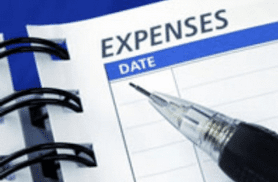 Consider paying your bills annually. Most times paying once a year (or even twice a year) could save you money. For example, Amazon Prime is $14,99 / month versus $149.99 annually – that’s a savings of $30.88. We pay our auto insurance annually to save money. #JillRussoFoster #FinancialLiteracyMonth
Consider paying your bills annually. Most times paying once a year (or even twice a year) could save you money. For example, Amazon Prime is $14,99 / month versus $149.99 annually – that’s a savings of $30.88. We pay our auto insurance annually to save money. #JillRussoFoster #FinancialLiteracyMonth
Financial Literacy Month #13
 Have you cut the cord or do you want to with your TV provider or streaming service? When was the last time you used your local library? With your library card you can download the Hoopla app and stream movies at home for free. #JillRussoFoster #FinancialLiteracyMonth
Have you cut the cord or do you want to with your TV provider or streaming service? When was the last time you used your local library? With your library card you can download the Hoopla app and stream movies at home for free. #JillRussoFoster #FinancialLiteracyMonth
Financial Literacy Month #8
 While thinking about saving money, what can you eliminate from your life that would save you money? Can you bring your choice of beverage from home versus buying? Can you stop buying bottled beverages? Do you bring your lunch with you from home? We have eliminated the trash removal / recycle bill by taking it ourselves. We went from $75/month to $25/year. How can you save? #JillRussoFoster #FinancialLiteracyMonth
While thinking about saving money, what can you eliminate from your life that would save you money? Can you bring your choice of beverage from home versus buying? Can you stop buying bottled beverages? Do you bring your lunch with you from home? We have eliminated the trash removal / recycle bill by taking it ourselves. We went from $75/month to $25/year. How can you save? #JillRussoFoster #FinancialLiteracyMonth
America Saves Week – Reducing Your Expenses
This is a favorite of mine. I am always looking to reduce the cost of things. Here are some ways that we have reduced our expenses:
- Bringing beverage and lunch to work instead of purchasing

- Stretching out the time between personal services – haircuts, nails etc.
- Asking for discounts – just received a discount code to take an online safe driving class to reduce the cost of auto insurance for the next three years
- No fee bank accounts and using online bill pay (not paying for postage)
- Eliminating annual costs – warehouse clubs, magazine subscriptions, TV subscriptions, etc.
- Using the local library for more than books
- Contacting your bill companies to see what offers are available. We received a $25 monthly discount on a bill for being a loyal customer
- We do things ourselves – lawn mowing / snow removal, taking our own trash / recycle to local facility and more
What bill bothers you the most? Have you looked into ways to reduce or eliminate it? Have you checked out the competitions pricing? Have you asked your family and friends for suggestions?
Do You Want To Find Hidden Money?
Yes, please – don’t we all. I can remember as a kid finding a $5.00 bill on the floor of Radio City Music Hall and I was thrilled. That’s not what we are talking about today.
How can you find hidden funds in your budget? Here are some of the ways that we have reduced or eliminated expenses to find money without any struggle:
- Do you have subscriptions and/or memberships that you don’t use? Cancelling those things and put more money in your pocket.
- Shop with a plan. We make a list of meals for the week and then look at what we have in the house then make the grocery list for shopping. Without it, we would be making duplicate purchases and spending more money at the store.
- Do emails make you shop? Unsubscribe from temptation. If you didn’t need the item before you opened the email, you probably don’t need to spend money on the item. If you can’t unsubscribe, then consider having those emails come to a different email that you only check when you need an item. Don’t be tempted to shop because of an email sale or daily deal.
- Are you paying bank fees? Stop! We have several bank accounts and don’t pay and monthly fees for any of our accounts. Find out what you need to do to avoid the fees associated with your account.

- You’ve heard this before, bring your beverage, lunch and snacks with you from home. A coffee for $3.00, a snack for $2.00 and lunch for $10.00 is $15.00 a day or $75.00 a week and $3,750 a year. What else could you do with that savings?
- Use your rewards points / rewards for items. We have a credit card without an annual fee, that gives us points for using. When it comes to our holiday shopping, we are able to use point for gift cards and this reduces our holiday shopping budget.
- Do you know your discounts and use them? What benefits does your company offer it’s employees? Take advantage of these savings opportunities. We get a discount on our monthly cell phone bills just for showing a paystub once a year. Our bank debit card offers us savings offers. We review the website and when we make the purchase then a percentage of the sale is deposited back to our checking account.
For more savings tips, pick up a copy of my books 111 Ways To Save.
The Holidays Are Here
The holidays are here. Yes, with many retailers starting there holiday shopping sales early this year, are you ready? This is a good thing, if you need to stay within a budget, start early.
First, make a list of all the people on your holiday gift list, then see if you can make changes.
Could you give a family gift instead of individual gifts?
Can you go in on a gift with someone else and share the cost?
Would a name draw work for the family party? With a name draw, each person buys only for the person whose name they drew. It’s fun and inexpensive. Do a separate drawing for the children so each child receives one gift and gives one gift. Make sure to set a dollar limit that everyone can afford.
Once your list is complete, set a firm amount for each person and don’t go over. The grand total of all your gifts should be a realistic amount that you can afford. Be honest with yourself and don’t overspend. You’ll regret it when the bills start coming in.
When shopping, keep your list of people and your budget amounts with you. Check the sales fliers now because holiday sales are already starting. Big retailers are also adding holiday layaway plans. Layaway plans work great if you know your budget. They allow you to make affordable payments without using a credit card.
You could also try giving gifts that don’t cost a lot of money. Service coupons are a wonderful gift. For example, you could cater a meal for a family that has a busy lifestyle. Try an inexpensive but meaningful gift, like a photo CD or memory album. The choices are endless if you take the time to think of what each person might enjoy most. This year with being at home more, I have come up with some great gift ideas that are meaningful, but not a budget breaker. I can’t tell you what they are as family members ready my newsletter.
The most important thing this holiday season is to have fun and enjoy your time together. Create new memories instead of new debts.
2020 A Year For The Records Books – Part 2
This is part 2 of 2020 A Year For the Record Books – click the link to read part 1.
We must learn to adapt our finances to changing times.If you live in the tri-state areas, we had a hurricane Esaias. Many people had damage to their homes / property and lost power for days. Having to replace all the food in y our fridge and freezer is a huge expense, that you probably weren’t expecting. Look into reimbursement from your renter’s / homeowner’s insurance (and possibly the power company) to ease your budget.
our fridge and freezer is a huge expense, that you probably weren’t expecting. Look into reimbursement from your renter’s / homeowner’s insurance (and possibly the power company) to ease your budget.
Spending more than you have. With more time at home and less going out, did you find yourself spending more online than your budget allows? Just because something is a good deal, doesn’t mean you need to purchase it. As they say, you don’t need to keep you with the Jones’s.
Credit card debt. You know that debt is the enemy of your budget, so carry a balance month to month on your credit card in not good. Yes, I know that right now creditors are working with you if you are having trouble payment your debt. But think long term, what is it costing you? Make a plan to payoff your debt in full each and every month, so this won’t be an issue with your finances.
With the holidays just around the corner, that will be another big expense for many. Think about what your plans are and how they may need to be adapted to fit your finances. Another words, don’t overdue it. Now is the time to make a plan and stick to it.
Now that I have shared with you some of the ways you might be accumulating debt, what are you planning on doing (or have done) to stop debt from accumulating?
2020 A Year For The Records Books – Part 1
2020 has been a year unlike any other – from job loss / furloughs to pandemics to hurricanes. All of this has signaled changes in our lives, not only in what we do (or don’t do), how we live and how it affects our finances. We must learn to adapt our finances to changing times.
For many this is a year that you started (or continue) to accumulate debt. Not a good thing! 
Let’s first talk about all the ways that you may be accumulating debt:
Not having an emergency fund. You have heard me preach over the years about having a savings account for life’s what ifs. This was the year that many of us needed to fall back on our emergency savings as jobs were lost / furloughed and the unemployment system was overwhelmed, and payment were delayed. Your emergency savings was the way to get you through in these uncertain times.
Adapting to change (the new normal). As your life changes, so should your finances. Meaning that if you have job loss / less income coming in, you need to tighten your belt and cutback on your expenses. Answer these two questions. Think what can I get for free that I have been paying for? Think what can I reduce or eliminate in my monthly expenses? Want more information, check out my past newsletter, Budgeting By The Numbers.
Eating out / take out. Food is one of the biggest expenses in a family’s budget. Typically, when I coach a family, it the food that is an issue with their spending. How much is it costing you to eat out, pick up take out, grab a beverage versus bringing and cooking at home? Track this and see where your family stands.
Reimbursable costs. In these uncertain times, you may have more medical than other years. Make sure to utilize all your options such as FSA and HSA accounts, in network providers, etc. I was speaking with someone who hadn’t submitted any expenses to her FSA account. She potentially could be leaving a lot of money on the table by not timely submitting her expenses for reimbursement.
Check out next week’s newsletter for part 2.
Simplifying By Making Choices
This stay at home time, we have made changes to our routine. Bills are still coming in and some are higher, but income stayed the same or was even reduced. Something h ad to change.
ad to change.
For our electric bill that went up (even more now with summer air conditioning), we unplugged. Think shutting the strips on the TV ‘s when not in use, unplugging the computers and printers when not is use, unplugging the kitchen appliances, and more. By doing this we have reduce our bill by about $15 a month. AARP has an article on lowering your electric bill during summer.
Previously, we have reduced our cable bill, by reducing it to basic TV service and internet. Now we add whatever paid service that works for us – and only one at a time. We have smart TV’s and can access programming through the internet apps that are free. We use our local library’s digital collection for free. Right now, we are using Sling TV for other channels. In total, we spend about $110 a month total, by reducing the cord. Hopefully, one day we can totally cut the cord!
We have also not renewed most magazine subscriptions and cancelled memberships. For our warehouse club, I had to go into our profile and uncheck automatic renewal. If you do this, remember to check that you are not being automatically being changed when you shouldn’t be.
Simplifying Home Improvements
If you have followed my blog, you know that we do projects around our home all the time. We typically a yearly list to do.
With more time on our hands and being a homeowner, means there is always a project / improvement that needs to be done, some by us and others by professionals.
Our first project this year was to replace the grass between the road and sidewalk with plants.  Delivery trucks parking on the sidewalk and the salt from the winter storms always made this grassy area a mess. Our hosta plants needed to be split, so this solved the problem. We removed the grass and placed weed block down, added the plants and completed it with mulch. No cost to us, just labor over two weekends.
Delivery trucks parking on the sidewalk and the salt from the winter storms always made this grassy area a mess. Our hosta plants needed to be split, so this solved the problem. We removed the grass and placed weed block down, added the plants and completed it with mulch. No cost to us, just labor over two weekends.
Next, we starting to replace fence panels. We are still doing this ourselves, by replacing a panels or two when we have a few hours and the weather cooperates. We’ll do what we can and at a slow pace. It sounds easier than it is, because it’s not only replacing the panel, we need to breakdown and transport the old panel to the town’s transfer waste station.
As you know, home improvement projects and maintenance are easier to do now versus having a major emergency home improvement project later.
- 1
- 2
- 3
- …
- 10
- Next Page »